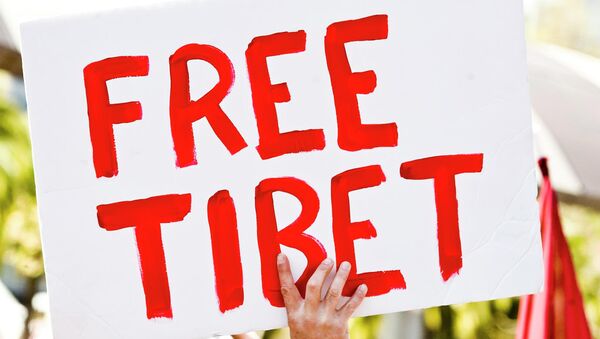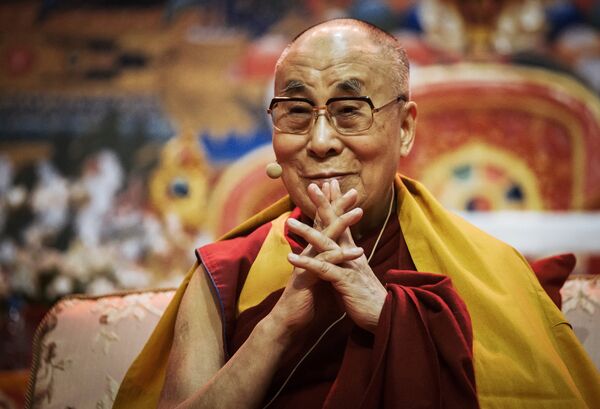The president of Tibet’s self-declared government in exile made history on Friday with a visit to the White House, the first leader of the Central Tibetan Administration (CTA) to do so in six decades.
According to a CTA press release, President Lobsang Sangay visited the White House on the invitation of the US State Department to meet with the newly-appointed US Special Coordinator for Tibetan Issues, Robert Destro.
“Today’s visit amounts to an acknowledgement of both the democratic system of the CTA and its political head”, the press release said. “This unprecedented meeting perhaps will set an optimistic tone for CTA participation with US officials and be more formalized in the coming years".
It is a great honor to be the first political head of the Central Tibetan Administration to formally enter the White House https://t.co/nbdVONjlmg
— Lobsang Sangay (@Drlobsangsangay) November 20, 2020
According to Reuters, the visit could lead to heightened tensions between Washington and Beijing, the latter has ruled Tibet since 1950 after the Chinese People's Liberation Army toppled what Beijing described at the time as a feudal theocratic system.
Deposed spiritual leader of the nation, the Dalai Lama, who has lived in India as an exile since his departure from Tibet in 1959, has accused the Chinese of culturally cleansing the region.
This comes as the Trump administration steps up its support for separatist movements within and outside of mainland China, alongside a global trade conflict to check growing Chinese economic power.
Following Destro's appointment to oversee US-Tibetan relations, China criticised the Trump administration for what Beijing claims is an attempt to destabilise the region.
"Xizang's (Tibet's) affairs are China's internal affairs that allow no foreign interference", said Chinese foreign ministry spokesperson Zhao Lijian. "The US appointment of the so-called 'special coordinator for Tibetan issues' is a political manipulation to interfere in China's domestic affairs and undermine Xizang's development and stability".
Zhao repeated that China "firmly opposes" the appointment and "has never acknowledged it".
Zhao also declared that China could retaliate, saying that the government would take "necessary measures to safeguard our interests".
The government of Chinese President Xi Jinping remains adamant that Tibet is part of China and has repeatedly accused the United States of attempting to foment instability in the country using separatist groups in the region since a purported CIA-Tibetan program throughout the 1950s and 60s.
In July, US Secretary of State Mike Pompeo accused Beijing of violating Tibetan human rights and declared support for “meaningful autonomy” for the autonomous region.
The same month, Pompeo announced the introduction of visa bans against Chinese officials who have allegedly restricted foreign access to Tibet.
.@SecPompeo shares the United States' concerns regarding the Chinese Communist Party's aggressive actions in the South China Sea and Tibet. pic.twitter.com/Ncbvq8exhX
— Department of State (@StateDept) September 2, 2020
Tibet has not been recognised as independent from China by the international community or any country on earth since 1950. However, a movement of support has developed to forward the work of the self-declared government.
In 2008, the Dalai Lama appeared to modify his original demand to return to full sovereignty, saying that his goal is for "Tibetan autonomy", with specific conditions including free speech and control over ethnic demographics and migration, instead of a separation from China.



